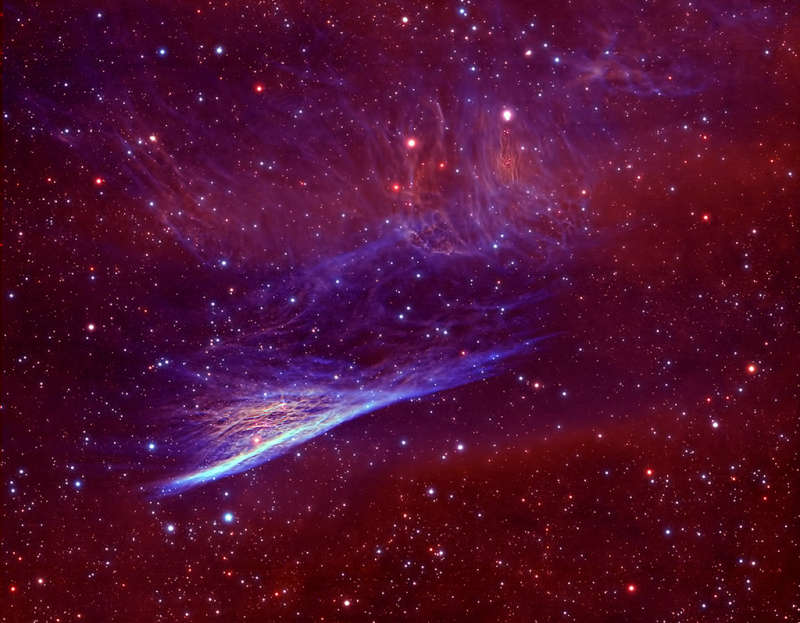Credit & Copyright: Howard Hedlund &
Dave Jurasevich,
Las Campanas Obs.
Explanation:
Moving from top to bottom in the frame near the center of this
sharply
detailed color composite, thin, bright, braided filaments
are actually long ripples in a cosmic sheet of glowing gas
seen almost edge-on.
The shock wave
plows through interstellar space at over 500,000 kilometers per hour.
Cataloged
as NGC 2736, its elongated appearance
suggests its popular name,
the Pencil Nebula.
The Pencil Nebula is about 5 light-years long and 800 light-years away,
but represents only a small part of the
Vela
supernova remnant.
The Vela remnant itself
is around 100 light-years in diameter, the expanding
debris
cloud of a star that was seen to explode about 11,000 years ago.
Initially, the shock wave was moving at millions of kilometers
per hour but has slowed considerably, sweeping up
surrounding interstellar material.
In the narrowband, wide field image, red and blue-green colors track the
characteristic glow of
ionized hydrogen and
oxygen atoms.
1999 2000 2001 2002 2003 2004 2005 2006 2007 2008 2009 2010 2011 2012 2013 2014 2015 2016 2017 2018 2019 2020 2021 2022 2023 2024 2025 |
Yanvar' Fevral' Mart Aprel' Mai Iyun' Iyul' Avgust Sentyabr' Oktyabr' Noyabr' Dekabr' |
NASA Web Site Statements, Warnings, and Disclaimers
NASA Official: Jay Norris. Specific rights apply.
A service of: LHEA at NASA / GSFC
& Michigan Tech. U.
|
Publikacii s klyuchevymi slovami:
tumannost' Karandash - ostatok Sverhnovoi
Publikacii so slovami: tumannost' Karandash - ostatok Sverhnovoi | |
Sm. takzhe:
Vse publikacii na tu zhe temu >> | |
